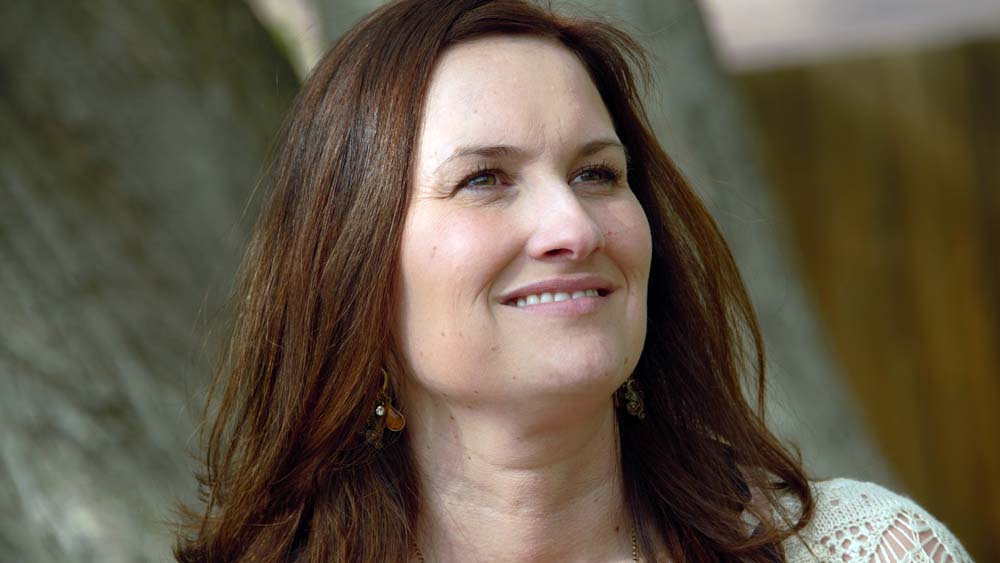In this installment of “Why I get my health care at VA,” Air Force Veteran Candace talks about how she transitioned to civilian life after a deployment in Iraq, how she wasn’t sure what life held in store for her afterward, but that she found passion at VA while helping to care for her fellow Veterans.
When you came home from Iraq, what was going in your life?
When I got home from Iraq, I was in my last semester of grad school. I actually got home two weeks into the semester, so I was already late. And because I had deployed, it pushed all of my schooling back so that the classes that were available were the classes I had taken the semester before. And so I just needed credits. And they said, oh, you can – it’s not paid, but you can get a couple credits just from doing a short, unpaid internship at VA. So I said okay, well, I’ll do that. I did my internship at VA and I really did love it. And so I thought, yes, I think I want to do this.
How did you find out you were eligible for VA health care?
The women’s program coordinator was really helpful. She said to me, well, are you registered? Have you gone down to eligibility and enrollment? And I said no, I don’t have VA benefits. And she said, no, you do. You can go down and you can enroll. So I did. I went down and I got registered. And I got my health care at VA.
What made you think you didn’t qualify for benefits?
Just a preconception that VA is for when you retire. I thought VA was more for retired old men. I didn’t even know it had a women’s clinic.
What I was really experiencing was just a hard time readjusting and coming back. I really just needed to talk to somebody, I think.
When did you find out about readjustment counseling and the Vet Centers?
I actually found out about the Vet Center when I applied for the job as a readjustment counselor. That’s my career now. The GI Bill afforded me my career.
I got my degree and I love what I do. I’m a readjustment counselor. And I’m also the MST (military sexual trauma) coordinator for the Vet Center.
Who’s eligible to come to the Vet Center?
Eligibility for a Vet Center is any Veteran who has served in a combat zone as well as their family members. Active duty service members are also eligible, as well as any Veteran, male or female, who has experienced military sexual trauma – that being any kind of unwanted sexual attention, whether that’s harassment or assault. Also bereavement, like family members of Veterans who have died on active duty.
What’s different about Vet Centers vs. Medical Centers?
Vet Centers have separate records from VA hospitals. So even the hospital can’t see our records. So, if any Veteran is concerned about confidentiality, it’s much stricter at a Vet Center. They’re small. They’re community based. Most of the counselors have also served in a combat zone. When you call, you talk to a live person. You can get in right away.
We’re also mobile, so we’ll come to you. If you’re in a rural area, we can usually figure something out that we can get services to you.
Before you came back, did you foresee a future at VA? Or did that experience during this internship impact you and turn you in that direction?
My goal when I graduated social work was to work with children. But then I did my internship at VA.
Working with Vets, I respect every single one of my clients. I truly believe that every single one of them has their own answer to whatever it is that they’re going through.
They may just need to talk it out to find that answer.
Apply for VA Health Care
Enrolling for VA health care is easier than ever before. Explore your eligibility today at www.choose.va.gov/health.
Topics in this story
More Stories
Veteran Byron Potier weighed almost 300 pounds and was tired and lethargic. He was the perfect candidate for gastric sleeve surgery.
How much do you know about VA care, benefits and services? Don’t miss out on what you've earned—check out the "2025 VA Federal Benefits Guide for Veterans, Dependents, Survivors, and Caregivers" handbook to learn more.
Feeling stressed? Your breath can help you relax and focus. Take 3 minutes to reset and prioritize your well being for this week's #LiveWholeHealth practice.






